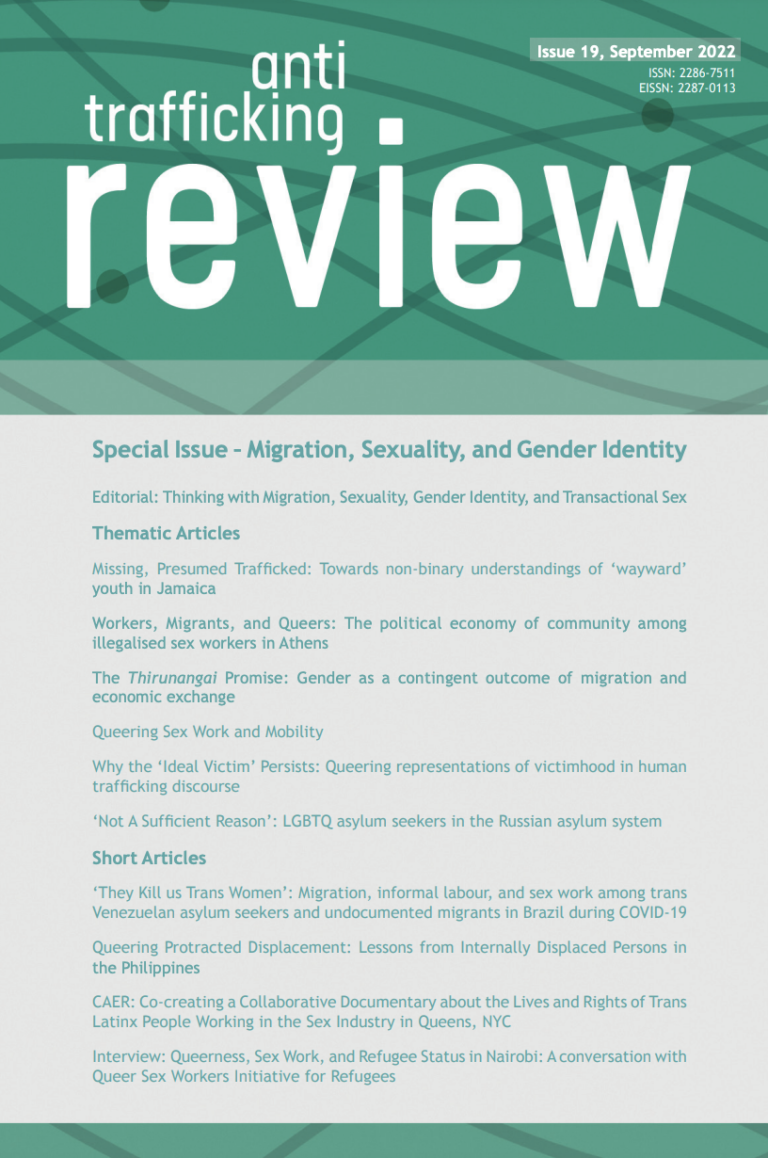This special issue of Anti-Trafficking Review bridges the fields of queer and transgender studies, migration studies, research on sex work, and critiques of the discourse on human trafficking. Along with centring LGBTQI+ subjects as actors within the empirical contexts of domestic and cross-border migration and transactional sex, this collection offers a unique set of perspectives on the operations and production of heteronormativity and juridical power within the spaces of informal economies. Broadly, these papers address the implications of the heightened juridical recognition of sexual orientation and gender identity for debates on migration, sex work, and human trafficking. In so doing, they demonstrate how queer theory can build on and complicate extant critiques of the trafficking framework regarding, e.g., the conflation of trafficking and prostitution, and the reduction of people who sell sexual services to tropes of cisnormative female victimhood and helplessness.
Theoretically, the papers in the issue address a key problematic of binary gender that emerges with the consolidation of the contemporary anti-trafficking framework in the late 1990s, discussed in more detail in the sections that follow. This problematic is built around the ways in which the trafficking framework renders sexuality and gender identity in relation to cross-border migration almost exclusively in terms of violence. Because violence subsumes questions of survival within this dominant frame for sex work and, increasingly, migration, any gender identity or sexual orientation other than cis-male heterosexuality is rendered as vulnerability that cannot act, speak, or transact. The issue addresses this gap by repositioning questions of violence, e.g., in marking the violence of state actors,
and by revealing how the discursive elisions constituted by this use of violence are manifested in the everyday lives of people surviving impoverishment around the world. This critique has significant implications for how queer, transgender, and all non-cisnormative people, and non-heteronormative practices, ‘appear’ as juridical categories in migration, asylum, and refugee processes, along with the implications this has for understanding transactional sex itself. Rather than eschewing the existence of unfree labour and human trafficking, the issue shows that mistaking economic migration for trafficking erases significant swathes of lived experience of the vast and growing numbers of people who live in extreme forms of privation and precarity.

